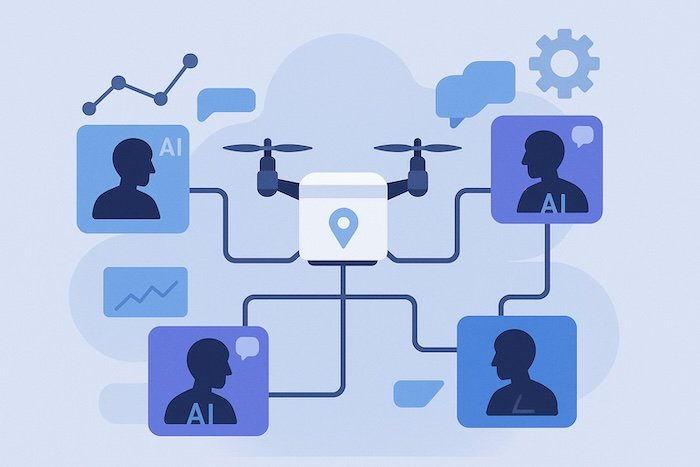In an era where efficiency and agility are critical to maintaining a competitive edge, AI-driven logistics automation is reshaping the future of global supply chains. Today, businesses are under immense pressure to meet the growing demands for fast, accurate, and cost-effective deliveries. To keep pace, logistics companies are increasingly turning to artificial intelligence to streamline their operations, enhance decision-making, and optimize every step of the supply chain.
1. Smarter Demand Forecasting
One of the biggest challenges in logistics is predicting demand accurately. AI can analyze historical data, market trends, and real-time factors to provide precise demand forecasting, ensuring companies maintain optimal inventory levels. This not only prevents costly stockouts but also reduces the waste associated with excess inventory. By leveraging AI-driven forecasting, companies can efficiently align their resources to meet customer demands without overextending.
2. Optimized Route Planning
AI also plays a vital role in route optimization. With advanced algorithms that analyze variables like traffic patterns, weather conditions, and delivery locations, AI systems can determine the most efficient delivery routes. This not only shortens delivery times but also reduces fuel costs and environmental impact. Furthermore, real-time tracking and adjustments allow logistics providers to handle unexpected delays more effectively, keeping customers informed and satisfied.
3. Enhanced Warehouse Automation
Warehouses are at the heart of any logistics operation, and AI-driven automation is making them smarter and more efficient than ever. From robotic pick-and-pack systems to intelligent sorting and shelving solutions, AI enables faster processing times and reduces the risk of human error. Additionally, machine learning tools can continuously improve warehouse operations by analyzing data on workflow patterns and identifying areas for improvement.
4. Better Decision-Making with Predictive Analytics
AI’s predictive analytics capabilities empower logistics managers to make data-driven decisions that improve overall operational efficiency. For instance, AI can help identify peak times, allowing companies to prepare resources and staff accordingly. This predictive insight gives logistics providers a proactive approach, helping them to stay ahead of potential disruptions.
Why AI-Driven Logistics Automation is a Game-Changer
AI-driven logistics automation not only brings immediate efficiency improvements but also sets a foundation for long-term growth. By automating repetitive tasks, reducing operational costs, and minimizing errors, logistics companies can focus on strategic initiatives that drive profitability. As competition intensifies, those who adopt AI-driven automation early will lead the industry, setting new standards for speed, accuracy, and customer satisfaction.
For those looking to dive deeper into the transformative power of AI in logistics, this article provides a comprehensive look at how AI-driven logistics solutions are unlocking new levels of efficiency and growth.















